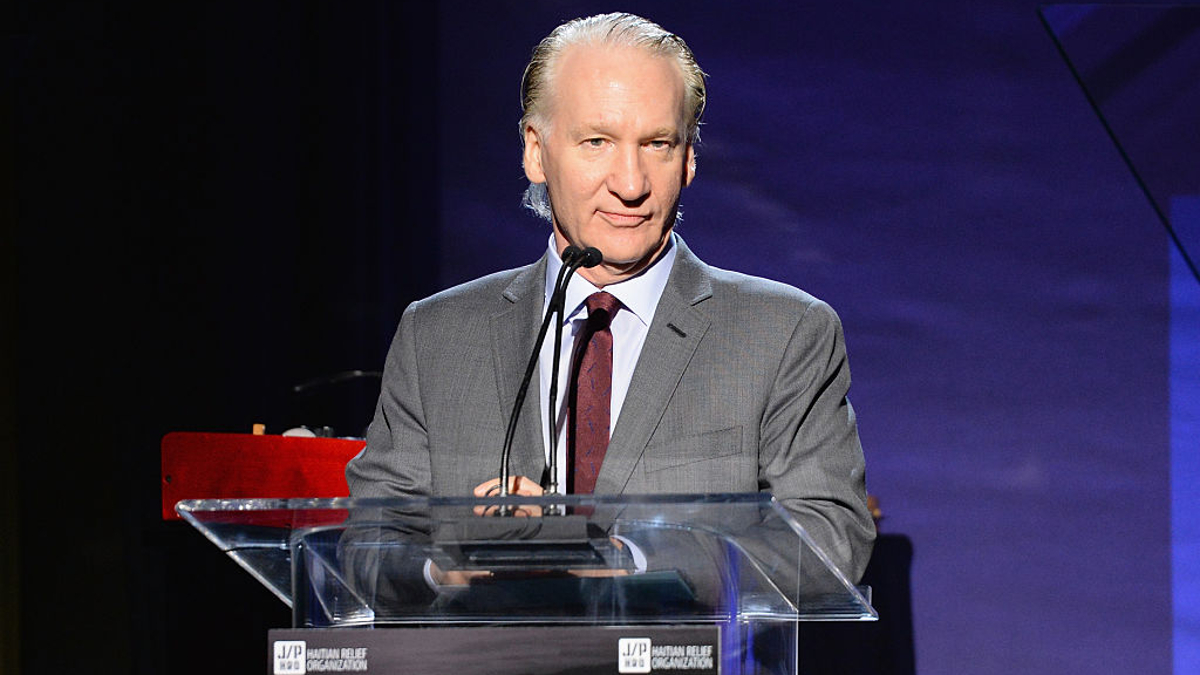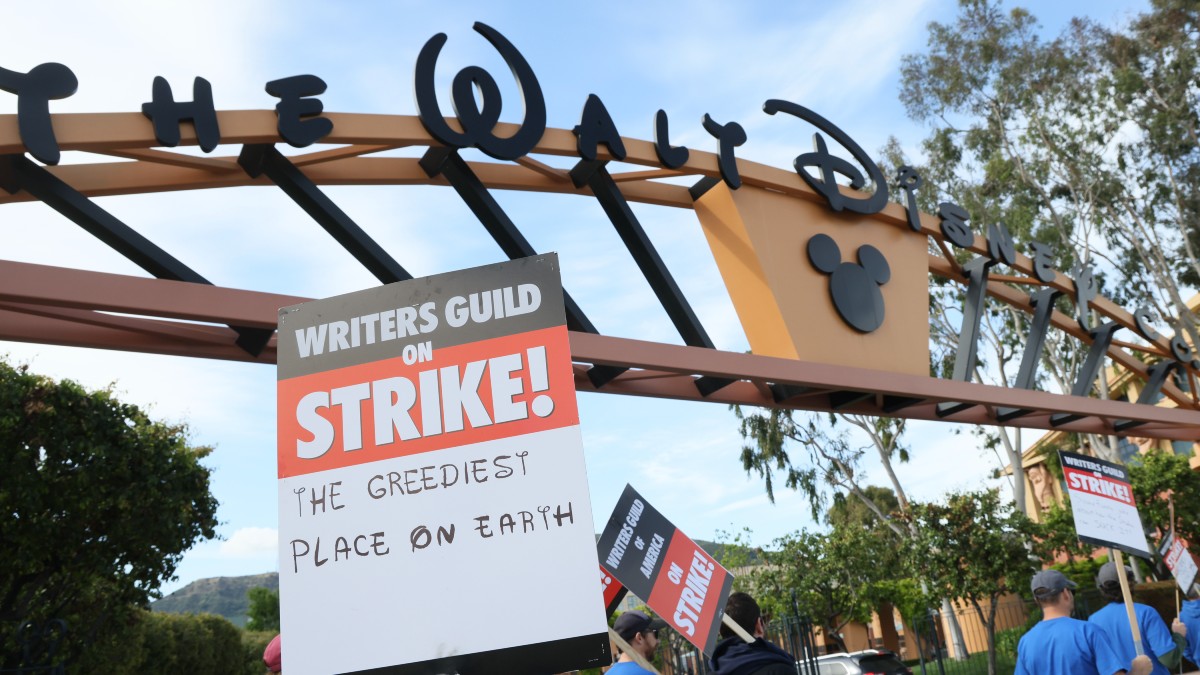Another day, another wealthy television personality making a tone deaf decision about returning to air during the WGA and SAG-AFTRA strikes. This time, it’s supposed liberal Bill Maher striking a blow executives, under the guise of just getting people “back to work,” which in laymans terms means trying to force people to sell their labor for less than it’s worth while c-suite execs sit back and make millions for doing a job that could be done by a monkey or a coin flip.
Maher’s tweet announcing the return of his show is full of dull, enlightened-centrist, both-sides reasoning that is infuriating, shallow, and pusillanimous — but then again, that’s Maher’s entire brand.
Plenty of folks have already called out Maher for his duplicitous post and horrible decision, including Stephen King. He’s also rightfully being labelled as a “scab” on social media and beyond. But what does the word “scab” mean in this context? And is it fair to call Maher a “scab?”
What is a scab?

To put it simply, a scab is a worker who breaks a strike. By working while their peers are striking, these people damage worker’s rights movements, and are usually selfishly putting their own interests above those of their peers, even when it will cause them harm in the long run as they end up suffering from lower pay, worse conditions, and a lack of respect from their bosses. The word “scab” has been used as a pejorative for strikebreakers since the late 19th century.
Unionism in the U.S often has a bad name attached to it, but this is mostly the result of relentless corporate propaganda. As the old saying goes, regulations are written in blood, and without unions it wouldn’t just be unsafe working conditions people have to worry about: there would be no weekends, no concept of sick pay, and no minimum wage. So, to put it bluntly, scabs are the workers equivalent of a “pick-me,” but so much worse.
Why is Bill Maher being called a scab?

Maher is being called a scab as he is bringing back his show, Real Time with Bill Maher, despite the ongoing WGA strike. This means that he is effectively breaking the strike. As a prominent name in the entertainment world, he has the soft power to be a force for good, but as usual he is utilizing the language of someone who considers themselves above the rest of his peers to try and justify his decision. His self-aggrandizing tweet announcing his decision is a masterclass in dismissiveness and victimhood, although he did at least have the decency to admit that without his writers the show would be even worse than it normally is:
“Real Time is coming back, unfortunately, sans writers or writing. It has been five months, and it is time to bring people back to work. The writers have important issues that I sympathize with, and hope they are addressed to their satisfaction, but they are not the only people with issues, problems, and concerns. Despite some assistance from me, much of the staff is struggling mightily. We all were hopeful this would come to an end after Labor Day, but that day has come and gone, and there still seems to be nothing happening. I love my writers, I am one of them, but I’m not prepared to lose an entire year and see so many below-the-line people suffer so much. I will honor the spirit of the strike by not doing a monologue, desk piece, New Rules or editorial, the written pieces that I am so proud of on Real Time. And I’ll say it upfront to the audience: the show I will be doing without my writers will not be as good as our normal show, full stop. But the heart of the show is an off-the-cuff panel discussion that aims to cut through the bullshit and predictable partisanship, and that will continue. The show will not disappoint.”
Of course, this is a man who equated the Me Too movement with McCarthyism (we wonder what skeletons he has in his closet) and made fun of people for wearing masks during a deadly global pandemic, so it’s no surprise that he’s on the side of the establishment.
Why are the WGA striking?

In short, the Writers Guild of America (WGA) are currently on strike as they are fighting for better pay and conditions. The contract that they were offered by Hollywood studios was deemed to be a bad deal, and as a result they are no longer working.
One of the main sticking points that writers have is that royalty payments (known as “residual payments”) have become incredibly low since the age of streaming, with billion dollar companies like Netflix and Hulu apparently unable to pay content creators fairly while lavishing their executives.
Writers are also upset about various Hollywood employment practices that they deem to be unfair, most notably the creation of so-called “mini-rooms.” This is when writers are hired to create a show and write scripts for it, but as the content hasn’t been picked up the studios pay them much less than they would normal writers. Writers are then dropped if the show doesn’t get picked up, leaving them unemployed. Even if the show is picked up, writers aren’t guaranteed a job, so the content they worked on makes money for the studios while they’re left struggling to pay rent. The WGA is calling for mandatory staffing.
Finally, writers are also wary of the use of AI in writers’ rooms, fearful that studios will try and replace them with automated content. Funnily enough, CEOs are probably the people who could be most easily replaced with AI and algorithms, but we’re not hearing too much about that.

